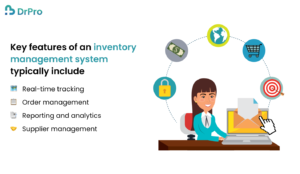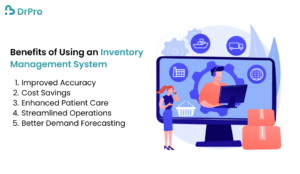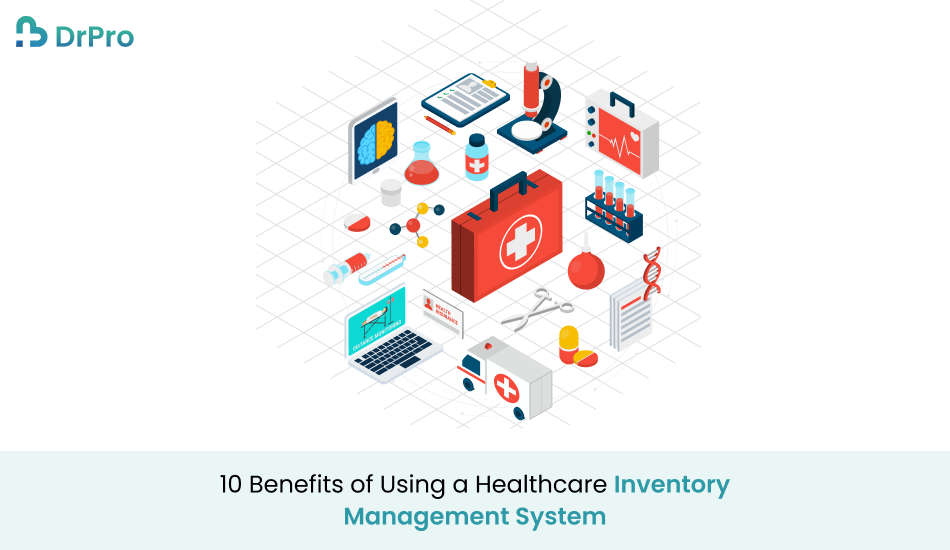Quick Summary
Most hospitals and clinics develop a healthcare inventory system management system because it improves the flow of the healthcare facility. In this article, ten major advantages of having such a system are mentioned including the following disadvantages; Also, ten valuable points can be considered when talking about the advantages of such a system: Also, an inclusion is made on what an inventory management system is, and some of the questions asked when using it in the health system.
Introduction
As everyone knows, health care is a competitive field where all resources must be used as efficiently as possible. They are instrumental in stock control, and in ensuring that those who need supplies to deliver appropriate healthcare have those supplies adequately. This can be seen as the healthcare industry unfolds, there is a growing demand for efficient supply chain management, this being inclusive of the stock.
This article outlines ten benefits of effectively implementing a healthcare inventory system management system to understand how such a system improves operations and patient care. Healthcare inventory system management systems provide features like automation, real-time tracking, and data analysis which in turn assist in managing the inventories. These systems help to properly manage the items used in the medical field so that the cost of keeping these items is well controlled. In this article, we will discuss 10 advantages of the use of a healthcare inventory management system and how applying one results in improved operations in healthcare organizations.
What is an Inventory system Management?
An inventory management system refers to an integrated package solution that enables an organization to keep records of the stock that has been ordered, sold, and delivered. In this particular context, within healthcare organizations, this system is required to address the issues of management of the medical supplies equipment, and pharmaceuticals that are crucial in the patient care delivery processes.
The details of inventory system operations suggest that if these procedures are automated, healthcare organizations will enhance their effectiveness and possibly eliminate costs associated with material unavailability and excess, as well as supply chain management in general.
When utilizing real-time data, an inventory system control system makes it easy for healthcare centers to manage inventories, reduce on expiry of products, and facilitate the procurement process. It also provides a look into usage patterns that enable facilities to maximize resource usage, and therefore cut down on costs incurred in a facility and enhance patient treatment and facility productivity.
Key features of an inventory management system typically include:

The features of an inventory system management are a list of features and capabilities that are aimed to provide the efficient management of stock. These systems can also include real-time updates reflecting the current status of stored resources giving the health care providers pretty dependable data to work on. He added that low stock alerts help replenish products on time to avoid running out of stock and consequently slowing down the delivery of quality patient care services.
Real-time tracking:
Real-time information on the stocks in all the stores.
Order management:
For instance, it facilitates the timely ordering of stock that enhances the supply of the stock to the business.
Reporting and analytics:
Report on consumption patterns of inventory system, usage analysis, and forecast.
Supplier management:
Enables’ communication and working relations with suppliers.
The potential of such a system can produce significant improvements that we discuss in the subsequent section below.
Benefits of Using an Inventory Management System

1. Improved Accuracy
Automated inventory systems management eliminates some of the things that can go wrong when one is manually tracking the inventory. In particular, the automation of inventory processes enables the accuracy of records in healthcare providers. Conducted through the Journal of Healthcare Management, a study showed that if you installed inventory management systems, your discrepancies were cut in half by 30%.
2. Cost Savings
An effective inventory system plays a vital role in achieving financial savings because it prevents healthcare organizations from purchasing and holding more inventory than they require and losing it in the process. This paper also avails techniques to track expiration dates and usage patterns and so facilities can order only what is required, thus reducing wastage. HFM, the Healthcare Financial Management Association, has found that such systems allow for savings of as much as 10% of total inventory systems costs in the hospital.
3. Enhanced Patient Care
Many times when health care providers have the appropriate equipment and accessories their patient’s overall wellbeing is enhanced. The inventory management system aims to make sure that only vital stock of medicare products is within reach when required. This does not only improve patient safety but also leads to improvement in the health of the patients. A survey conducted by the American Hospital Association reveals that 72% of the healthcare industry people feel that inventory management improves the quality of patient care.
4. Streamlined Operations
Inventory workflow contributes to the effective running of the healthcare organization through automation. Superiors can save time in managing inventory and can instead concentrate more on patients’ needs. The Institute for Healthcare Improvement makes it known on its website that hospitals that employ inventory management systems enjoy an improved operational efficiency of about 20 percent.
5. Better Demand Forecasting
Healthcare inventory management systems use historical data and analysis in a bid to ensure they estimate the next demand. These systems assist organizations in forecasting future requirements, avoiding stock-outs and over-stock conditions which are results of previous usage. Health Affairs has confirmed that inventory costs can be slashed by 15% in the event of a better demand forecast.
6. Compliance and regulation compliance
There are always some key regulations and compliance standards that healthcare organizations cannot avoid regarding inventory management. An IMS aids in making sure that all the stocks, drugs, and related products are stored, documented, and disposed of in the right manner since the laws require it. When it comes to non-compliance, the consequences are quite adverse on all fronts and entail not only the danger to the patient’s life but also risks legal.
7. Suppliers Management
Inventory controls help organizations improve communication with suppliers and hence develop sound relations with suppliers to enhance the procurement chain. When it comes to the necessary inventory, data on availability enables healthcare providers to work with the suppliers to be more favorable and gain timely deliveries. As the Supply Chain Management Review has found out, it is possible to lower procurement costs by 8% if an organization has good supplier relationships.
8. Reduced Shrinkage and Theft
Stock losses through theft or otherwise have great potential to reduce the financial potential of many healthcare facilities. A good IM system helps in creating awareness of the existing stock and its usage so that it becomes easier to point out anomalies. Healthcare Facilities Today report shows that in hospitals that use inventory system management, lack reduces by an average of 12%.
9. Increased Accountability
When one implements an inventory management system then he or she can identify who is using the supplies. This accountability hinders most people from embezzling or misusing the resources that are in their care. Healthcare providers may closely remain in the inventory system management environment utilizing the application of role-based access controls.
10. Scalability
With the expansion of the healthcare organizations comes the growth of the organization’s inventory needs. An efficient system of inventory management must be easily scalable as well as modified according to the further needs and requirements of the organization and expanded to fit new products and, if necessary, new suppliers. This flexibility is especially useful to organizations in their phases of growth because it will not compromise efficiency.
Conclusion
There are many advantages of a healthcare inventory system management including increased accuracy and reduced costs, better patient care, and ease of managing equipment and consumables. Due to this kind of development in healthcare, investment in such systems becomes crucial for organizations interested in improving the management of their inventories. When using the technologies in the provision of health care services, the service providers will be in a better position of fulfilling the essential supplies at the appropriate time which consequently will have an impact on the patient care.
Together, ProjectTree and DrPro offer a powerful integration that enhances productivity and effectiveness across project management and healthcare sectors.
FAQs
1. What types of healthcare facilities can benefit from an inventory system management?
Every kind of center that deals with the management of human health such as hospitals, clinics, nursing homes, and pharmacies requires an inventory system management. It assists in keeping good stock conditions, which are adopted because of the increased efficiency.
2. How does inventory system management improve patient care?
An inventory system management guarantees the timely availability of key medical commodities and drugs thus improving patient care and results.
3. Can inventory system management help reduce costs?
Indeed, such systems are useful in that they can greatly reduce the amount of inventory system needed by avoiding overstocking, not allowing products to go to waste, and informing the best time to order more parts.
4. How does an inventory management system enhance collaboration with suppliers?
It has reduced the time consumption of procurement management by adding features like real-time inventory system level information, thus improving the relations between the company and suppliers.
5. Are inventory system management scalable?
Yes, it is important to realize that most inventory system management are created with this in mind and; are flexible to fit within the growth model of any given healthcare organization.


